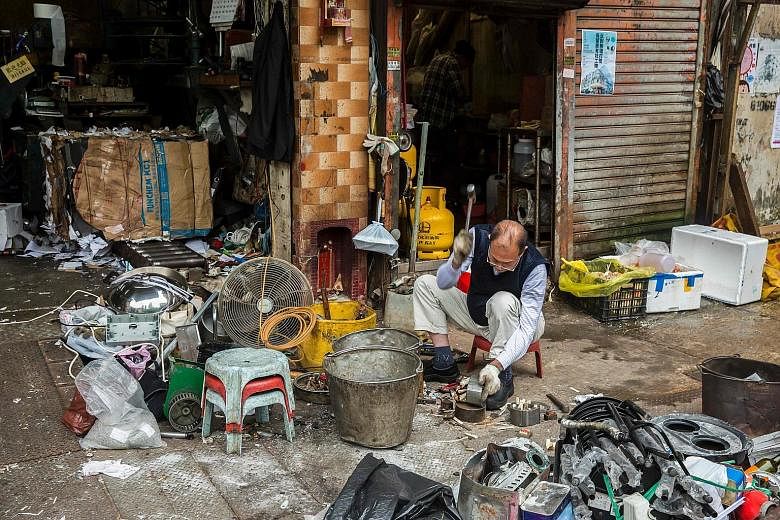MANILA • Electronic waste is rising sharply across Asia as higher incomes allow hundreds of millions of people to buy smartphones and other gadgets, with serious consequences for human health and the environment, according to a UN study released yesterday.
The so-called e-waste in Asia has jumped 63 per cent in five years, the report by the United Nations University said, as it warned of a need for most nations across the region to improve recycling and disposal methods.
"For many countries that already lack infrastructure for environmentally sound e-waste management, the increasing volumes are a cause for concern," said Mr Ruediger Kuehr, the report's co-author and head of the UN University's Sustainable Cycles Programme.
For many years, China and some other parts of Asia have been a dumping ground for discarded electronics from the developed world, recycling the waste in often unsafe but ultra-cheap backyard factories.
But the report said that in recent years, Asia has rapidly emerged as a major source of e-waste, due to increasingly affluent consumers buying items such as cellphones, tablets, refrigerators, personal computers and television sets.
-
21.7kg The average amount of e-waste a Hong Konger generated in 2015.
19kg Slightly more than this amount of e-waste was generated per person in Singapore and Taiwan in 2015.
China more than doubled its own generation of e-waste between 2010 and 2015, the period of the study, according to the report.
The worst-offending economy in the region per capita was Hong Kong, with each person in the Chinese territory generating an average of 21.7kg of e-waste in 2015.
Singapore and Taiwan were also big e-waste dumpers, with slightly more than 19kg per person generated in 2015, according to the study.
Cambodia, Vietnam and the Philippines were among the lowest e-waste generators, with an average of about 1kg per person.
Meanwhile, improper and illegal e-waste dumping means increased exposure to extremely toxic chemicals, leading to severe health and environmental consequences.
Acids that are used to separate the metals in the electronic products are a particular concern, with inhalation or exposure to them causing serious health problems.
In the Chinese town of Guiyu, which built its economy on recycling waste from overseas, heavy metal contamination has turned the air and water toxic, according to a 2014 study by researchers at Shantou University Medical College. Children in the town had high lead levels in their blood, the study found.
When Agence France-Presse visited Guiyu in 2014, electronic remnants were strewn in a stream, and the air was acrid from the burning of plastic, chemicals and circuit boards.
AGENCE FRANCE-PRESSE

